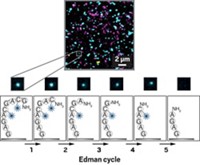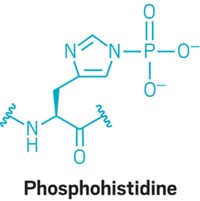Advertisement
Grab your lab coat. Let's get started
Welcome!
Welcome!
Create an account below to get 6 C&EN articles per month, receive newsletters and more - all free.
It seems this is your first time logging in online. Please enter the following information to continue.
As an ACS member you automatically get access to this site. All we need is few more details to create your reading experience.
Not you? Sign in with a different account.
Not you? Sign in with a different account.
ERROR 1
ERROR 1
ERROR 2
ERROR 2
ERROR 2
ERROR 2
ERROR 2
Password and Confirm password must match.
If you have an ACS member number, please enter it here so we can link this account to your membership. (optional)
ERROR 2
ACS values your privacy. By submitting your information, you are gaining access to C&EN and subscribing to our weekly newsletter. We use the information you provide to make your reading experience better, and we will never sell your data to third party members.
Analytical Chemistry
Proteomics Takes The Middle Road
Protease digests proteins into large peptides for middle-down proteomics
by Celia Henry Arnaud
June 25, 2012
| A version of this story appeared in
Volume 90, Issue 26
Researchers led by Northwestern University’s Neil L. Kelleher report a protease that digests proteins into large peptides for mass spectrometric analysis in “middle down” proteomics (Nat. Methods, DOI: 10.1038/nmeth.2074). Bottom-up proteomics uses trypsin or other proteolytic enzymes to digest proteins into small peptides that make identifying proteins or posttranslational modifications difficult, especially in complex mixtures. Performance in top-down proteomics, which involves analyzing intact proteins, decreases as the proteins increase in size. Middle-down proteomics addresses some of the shortcomings of these two conventional proteomics methods. Kelleher and coworkers used an outer membrane protease T (OmpT) from Escherichia coli to cleave proteins into peptides about 5 to 20 kilodaltons in size. By interrogating peptides smaller than 15 kDa produced during OmpT digestion of proteins from human cancer cells, the researchers identified 3,697 peptides from 1,038 proteins. They found that OmpT has a preference for dibasic sites with two positively charged amino acids, lysine and arginine, at its cleavage recognition sites. The resulting peptides were large enough for the researchers to differentiate closely related protein isoforms and to detect posttranslational modifications.




Join the conversation
Contact the reporter
Submit a Letter to the Editor for publication
Engage with us on Twitter